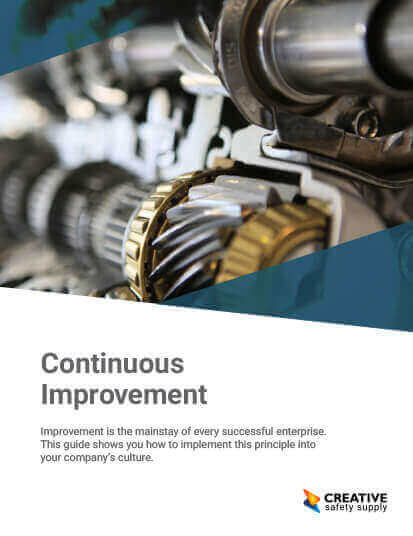
In the landscape of modern business, the role of a Continuous Improvement Manager stands out as a pivotal one, focused on driving organizational excellence through systematic enhancements. Let's delve into the responsibilities, skills, and significance of this role in fostering a culture of continuous improvement.
Role and Responsibilities
A Continuous Improvement Manager is entrusted with the critical task of developing, implementing, and overseeing strategies that optimize processes, eliminate waste, and enhance operational efficiency. Their role extends across various dimensions of an organization, including:
- Process Analysis: Identifying inefficiencies and bottlenecks in existing processes.
- Data Collection: Gathering and analyzing data to uncover insights and trends.
- Problem Solving: Collaborating with teams to address challenges and implement solutions.
- Change Management: Guiding teams through process changes and improvements.
- Training and Education: Providing training on continuous improvement methodologies.
- Performance Metrics: Establishing key performance indicators (KPIs) to track progress.
- Project Management: Leading improvement projects from conception to execution.
- Collaboration: Engaging cross-functional teams to drive improvement initiatives.
Skills and Qualifications
To excel in the role of a Continuous Improvement Manager, individuals should possess a unique blend of skills and qualifications:
- Analytical Thinking: Proficiency in analyzing data, identifying patterns, and making data-driven decisions.
- Problem-Solving: Ability to identify root causes, devise effective solutions, and implement changes.
- Communication: Strong communication skills to convey improvement strategies and collaborate with teams.
- Leadership: Skill in leading and motivating teams to embrace change and adopt new practices.
- Project Management: Effective project management skills to drive improvement initiatives to fruition.
- Change Management: Expertise in managing change within an organization and overcoming resistance.
- Industry Knowledge: Understanding of industry-specific processes and best practices.
- Continuous Learning: Willingness to stay updated with evolving methodologies and trends.
Significance in the Organization
A Continuous Improvement Manager plays a vital role in shaping an organization's culture of continuous improvement. Their contributions lead to several tangible benefits:
- Enhanced Efficiency: By identifying and eliminating inefficiencies, processes become leaner and more productive.
- Cost Savings: Streamlined operations result in reduced waste and optimized resource utilization.
- Quality Improvement: Improved processes lead to fewer errors and higher product or service quality.
- Innovation: Creating an environment where employees are encouraged to suggest and implement improvements.
- Employee Engagement: Involvement in improvement initiatives boosts morale and engagement.
- Competitive Edge: Organizations with a culture of continuous improvement remain agile and competitive.
The role of a Continuous Improvement Manager is instrumental in creating a culture of ongoing enhancement within an organization. By leveraging their skills in analysis, problem-solving, and change management, they drive efficiency gains, cost reductions, and quality improvements. Through collaboration, strategic thinking, and a commitment to excellence, Continuous Improvement Managers contribute significantly to an organization's sustainable success in an ever-evolving business landscape.
Similar Questions
- What is a Continuous Improvement Engineer?
- What is Continuous Improvement?
- What are Continuous Improvement methodologies?
- How do Continuous Improvement and Lean Increase Efficiency?
- What is the Continuous Improvement Process?
- How is Continuous Improvement related to Kaizen?
- What does Continuous Improvement and Innovation mean?
- What is the DMAIC Cycle? A Comprehensive Guide
- What are some examples of Continuous Improvements?

